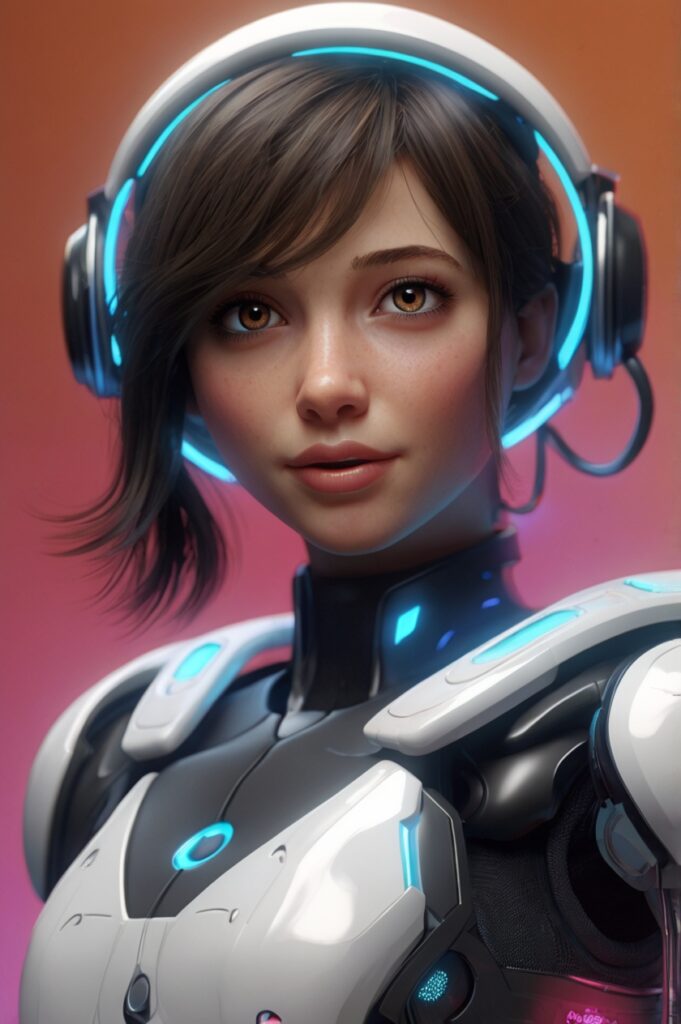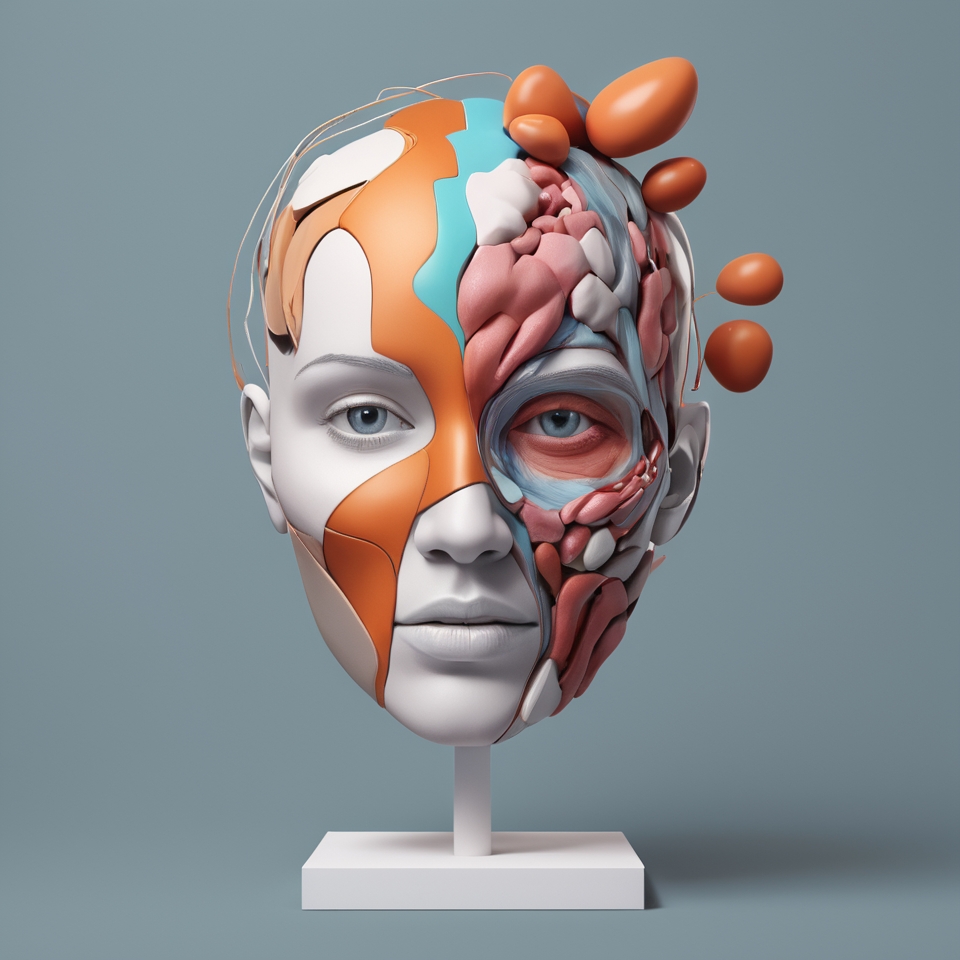Artificial Intelligence (AI) is no longer a concept reserved for science fiction. It has found its way into almost every aspect of our lives, from the way we communicate and work to how we manage our homes. But what does the future hold for AI? As advancements in technology continue at an unprecedented rate, AI is expected to revolutionize many areas of our everyday lives. This article explores the ways AI is already transforming our daily routines and how it is set to play an even bigger role in the years to come.
AI in Personal Assistants
One of the most obvious ways AI has already entered our homes is through virtual assistants like Alexa, Siri, and Google Assistant. These AI-powered tools are now able to do everything from setting reminders to controlling home devices. With natural language processing (NLP) improving, these assistants are getting better at understanding human speech and providing more personalized experiences.
In the future, we can expect AI personal assistants to become even more integrated into our daily lives. Imagine a virtual assistant that can predict your needs before you even voice them, assist with complex tasks like grocery shopping, or even manage your health appointments. The possibilities are endless.
AI in Healthcare
AI’s impact on healthcare is profound and growing. Already, AI systems are being used to analyze medical imaging, helping doctors detect diseases like cancer more accurately and earlier than ever before. AI also plays a role in creating personalized treatment plans by analyzing vast amounts of data, leading to more effective therapies tailored to individual patients.
Looking forward, AI could revolutionize preventive healthcare, offering real-time monitoring of vital signs through wearable devices and predicting health issues before they become serious problems. AI will also aid in drug discovery, speeding up the development of life-saving treatments.

AI in Transportation
The dream of fully autonomous vehicles is closer to reality than many people think. Self-driving cars are already being tested in various cities around the world. AI is at the heart of this innovation, using sensors, machine learning algorithms, and real-time data analysis to navigate roads, avoid obstacles, and predict traffic patterns.
Beyond self-driving cars, AI plays a crucial role in managing traffic and improving logistics. AI systems can optimize delivery routes for faster and more efficient transportation of goods, saving time and reducing carbon emissions.
AI in Home Automation
Smart homes are another area where AI is having a major impact. With the Internet of Things (IoT), devices in our homes are now connected and can be controlled remotely. AI enhances this by learning our routines and adjusting home settings—like temperature, lighting, and security systems—automatically.
In the near future, we could see homes that are fully automated, requiring little to no manual input. Imagine your house detecting that you’ve left for work and locking the doors, turning off the lights, and lowering the thermostat to save energy—all thanks to AI.
AI in Education
AI’s role in education is becoming more significant by the day. Through AI, personalized learning experiences are now possible, helping students learn at their own pace and in ways that suit them best. AI tutors can provide real-time feedback and support, making learning more accessible than ever.
AI-powered virtual classrooms are also transforming traditional education. In the future, AI will continue to break down geographical and financial barriers, allowing for more inclusive education systems that cater to everyone, regardless of their location or circumstances.
AI in Entertainment

Have you ever wondered how Netflix seems to always know what you want to watch next? That’s AI at work. Recommendation algorithms analyze your viewing habits and suggest content based on your preferences. Similarly, AI is used in gaming to create more immersive and responsive experiences.
AI’s influence on the creative industries is also growing, with AI tools being used to compose music, write scripts, and even create visual art. The future of entertainment may include AI-generated movies, personalized storylines, and interactive content that adapts to the viewer’s responses.
AI in Customer Service
AI-powered chatbots have become increasingly common in customer service, helping businesses handle simple inquiries and offering 24/7 support. These bots use AI to understand customer questions and provide relevant answers, improving customer satisfaction while freeing up human agents to handle more complex issues.
As AI technology advances, chatbots will become even more adept at dealing with complex customer needs, offering faster and more accurate responses. AI can also analyze customer data to predict behaviors and preferences, enabling businesses to provide a more personalized shopping experience.
AI in Finance
In the finance sector, AI is used for everything from detecting fraudulent transactions to managing investments. AI systems can quickly analyze vast amounts of data to identify unusual patterns, helping to prevent fraud before it happens. Financial planning is also benefiting from AI, with robo-advisors providing personalized investment advice based on individual risk tolerance and goals.
As we look to the future, AI will likely play an even bigger role in banking, from automating routine tasks to offering personalized financial services that adapt to changing circumstances in real time.

AI in Communication
AI is improving the way we communicate, particularly across languages. AI-powered translation tools like Google Translate are making it easier for people from different linguistic backgrounds to communicate in real time. AI is also being used in social media platforms to curate content, manage conversations, and analyze trends.
In the future, we could see even more sophisticated AI tools for communication, from real-time voice translation to personalized messaging that understands the context of your conversations and responds accordingly.
AI in Shopping and E-commerce
AI is transforming the retail landscape by personalizing the shopping experience. Have you ever noticed how your favorite online stores seem to recommend products that are just what you’re looking for? That’s AI analyzing your browsing and purchasing history to tailor your shopping experience.
AI also plays a role in managing inventory, optimizing pricing strategies, and even predicting consumer trends. The future of shopping may involve virtual assistants that help you make purchases, AI-driven product design, and fully automated retail stores.
Ethical Considerations of AI
As AI becomes more integrated into our lives, it brings up several ethical questions. How can we ensure that AI systems are fair and unbiased? What happens to jobs as more tasks become automated? And how do we protect our data privacy in an AI-driven world?
These are critical questions that need to be addressed as AI continues to evolve. We must find ways to mitigate AI bias, ensure that AI augments rather than replaces human workers, and establish guidelines to safeguard personal data.

The Future of AI and Human Collaboration
Rather than replacing humans, AI has the potential to enhance human creativity and problem-solving abilities. This concept of augmented intelligence refers to AI working alongside humans to achieve better outcomes. From improving decision-making processes to assisting with creative tasks, AI will be an invaluable tool in the future workplace.
The Potential Risks of AI
Despite its many benefits, AI also comes with potential risks. One concern is that AI could be used for malicious purposes, such as cyberattacks or surveillance. There is also the fear that AI might eventually surpass human control, leading to unintended consequences.
It’s important to establish regulations and safeguards to prevent these risks while still allowing AI to thrive and bring about positive change.
Conclusion
Artificial Intelligence is already reshaping our daily lives, and its influence will only continue to grow. From personal assistants to healthcare, transportation, and education, AI is set to play an even bigger role in the future. By embracing the potential of AI while addressing its ethical and societal challenges, we can create a future where AI enhances human life in unprecedented ways.
FAQs
1. What role will AI play in everyday life in the next 10 years?
AI will become even more integrated into our daily lives, enhancing everything from personal assistants and healthcare to transportation and entertainment.
2. How will AI impact the job market?
While AI may automate certain tasks, it will also create new jobs and industries. The challenge will be to reskill workers for AI-driven roles.
3. Can AI fully replace human intelligence?
No, AI is designed to complement human intelligence, not replace it. AI excels in data analysis and pattern recognition, while humans are better at creativity and emotional intelligence.
4. Is AI safe for everyday use?
Yes, but like any technology, AI must be used responsibly. Ensuring privacy and ethical guidelines are followed is crucial to its safe implementation.
5. What are the most exciting future trends in AI?
Some of the most exciting trends include AI in personalized healthcare, autonomous vehicles, and AI-driven creative industries like art, music, and film.
ExteriorsInteriorsGardensPatiosInteriorsTerraces
with AI, in Less than 30 Seconds
Upload your photo, choose a mode and pick from over 75 design styles. Reimagine Any Home Interior, Exterior, or Garden using AI. Click here


